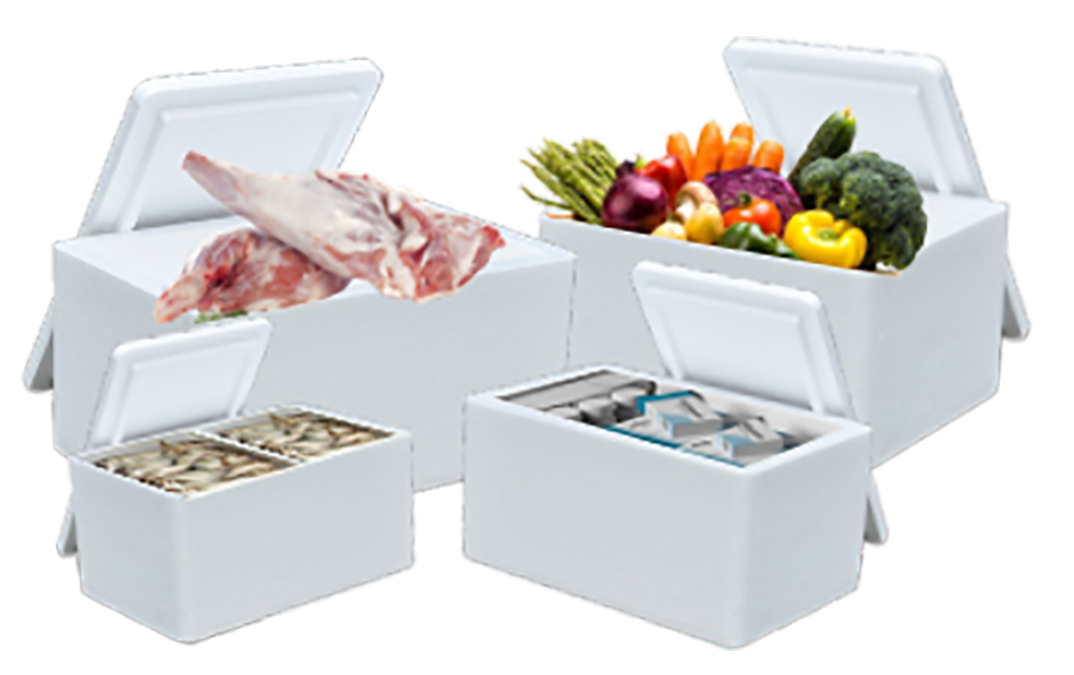EPS Insulated Boxes
We are the manufacturer of food & medicine packaging, fish boxes. We provide high-quality Eps insulated boxes in Pakistan.
Style EPS insulated boxes are utilized to ensure temperature protection of sensitive products such as pharmaceuticals or food items during storage or transit. Lightweight insulation material is featured, allowing for enhanced thermal performance according to varying temperature conditions and energy exchanges. We are an acclaimed manufacturer of these high-quality EPS-insulated boxes in Pakistan.

Introduction
EPS (Expanded Polystyrene) insulated boxes have revolutionized the packaging industry with their exceptional thermal insulation properties. These boxes are designed to protect and preserve temperature-sensitive products during storage and transportation. In this article, we will delve deeper into what EPS boxes are, their insulation capabilities, the reasons behind their extensive usage in packaging, and the significance of EPS insulation. So, let’s explore the world of EPS-insulated boxes.
What is an EPS Box?
An EPS box, also known as a foam box, is a type of packaging container made from expanded polystyrene foam. EPS is a lightweight, rigid, and versatile material commonly used in various industries due to its excellent insulation properties.
They come in different sizes and shapes and are widely employed for packaging perishable goods, pharmaceuticals, food items, and other temperature-sensitive products.
EPS boxes consist of interconnected polystyrene beads that are expanded using steam and heat, resulting in a highly insulating and shock-absorbing material. The expanded structure of EPS provides excellent thermal insulation by minimizing heat transfer and temperature fluctuations.
What is EPS Insulation Used For?
EPS insulation plays a crucial role in maintaining the temperature of packaged goods. Its primary purpose is to provide thermal protection and prevent temperature fluctuations that can affect the quality and integrity of sensitive products. EPS-insulated boxes are extensively used for various applications.
Cold Chain Packaging:
EPS boxes are widely employed in cold chain logistics to safeguard the freshness and integrity of perishable items such as seafood, fruits, vegetables, and dairy products during transportation. The superior insulation properties of EPS ensure that the desired temperature is maintained throughout the supply chain.
Pharmaceutical Packaging:
Many pharmaceutical products require strict temperature control to maintain their effectiveness. EPS-insulated boxes provide the necessary temperature stability for the safe transportation and storage of vaccines, insulin, and other temperature-sensitive medications. They help protect pharmaceuticals from temperature variations that could potentially compromise their quality.
Food and Beverage Packaging:
From frozen foods to confectionery items, EPS-insulated boxes ensure that food products remain fresh and unspoiled by maintaining the desired temperature during transit. EPS boxes act as a barrier against external temperature changes, preserving the quality and extending the shelf life of perishable food items.
Why is EPS Used in Packaging?
EPS is the material of choice for packaging due to its exceptional insulation properties, lightweight nature, and cost-effectiveness. Several key factors contribute to the extensive usage of EPS in packaging solutions.
Superior Thermal Insulation: EPS has outstanding thermal insulation capabilities, effectively minimizing heat transfer between the external environment and the packaged goods. This insulation helps to maintain the desired temperature range and prevents spoilage or damage caused by temperature variations.
Lightweight and Durable:
EPS-insulated boxes are lightweight, making them easy to handle and transport. Despite their lightness, EPS boxes are also durable and resistant to impact, ensuring the protection of packaged products. This combination of lightweight and durability is highly desirable in the packaging industry.
Versatility:
EPS can be moulded into various shapes and sizes, allowing manufacturers to create customized packaging solutions to suit specific product requirements. Its versatility makes it suitable for a wide range of applications, from small vials to large seafood shipments. They can be designed with compartments, inserts, and cushioning features to secure products during transit.
Cost-Effectiveness:
EPS is an affordable material, making it an economical choice for packaging solutions. Its low cost, combined with its insulation properties, makes it a preferred option for businesses looking for effective and budget-friendly packaging solutions. EPS insulated boxes offer a cost-effective way to protect temperature-sensitive products without compromising quality.
What is the Full Form of EPS Insulation?
EPS stands for Expanded Polystyrene insulation. It is derived from expanded polystyrene foam, a lightweight and rigid material known for its excellent thermal insulation characteristics. The expanded structure of EPS foam, created through the expansion process, provides the insulation properties that make it suitable for packaging applications.
Conclusion
EPS-insulated boxes have become an indispensable part of the packaging industry, enabling the safe transportation and storage of temperature-sensitive products. The exceptional thermal insulation properties of EPS, combined with its lightweight nature, durability, versatility, and cost-effectiveness, make it an ideal choice for various industries.
By utilizing EPS-insulated boxes, businesses can ensure the freshness, quality, and integrity of their products, ultimately enhancing customer satisfaction. So, next time you come across an EPS insulated box, remember the essential role it plays in preserving the temperature-sensitive contents within.
Technical Data

